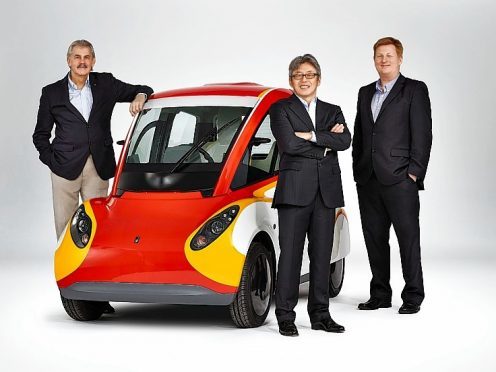Oil and gas giant Shell yesterday unveiled a dinky prototype car which is “packed with potential”, having been designed to use 34% less energy than other “city” models.
The so-called Shell Concept Car, which is not being put into production, for now, at least, is a three-seater with a turning circle “smaller than that of a London taxi”.
The company said the style was a “new take on the tall and narrow look”.
Its energy saving capabilities have been achieved through “innovative engine design and lubricant formulation”, Shell said, adding the project could be “transformational” for the road transport sector.
Shell was one of three companies involved in building the car. The Anglo-Dutch energy major specially designed a type of motor oil which does more to reduce friction than other lubricants, making the vehicle more efficient to run.
Switzerland-based Geo Technology re-designed a three-cylinder petrol engine, also with the aim of reducing friction, and Gordon Murray Design, headquartered in Surrey, provided a lightweight platform, chassis and components.
The materials were made from recycled carbon fibre, giving the car a total weight of just over half a tonne.
Mark Gainsborough, executive vice-president of Shell’s global lubricants businesses, said the car could become a force for good in the fight to reduce the impacts of climate change.
He added: “This project shows that if we use the best of today’s technology, including cutting edge lubricants science, we could potentially have a major impact on energy use and reduce CO2 emissions.
“The improvement in economy derived from the collaborative design of engine and lubricant is impressive and highlights the enormous benefits achieved from close relationships between design partners.
“It also shows the powerful role that lubricants can potentially play in helping achieve CO2 reduction targets.”
Andrew Hepher, deputy head of Shell’s lubricant research team, said: “Our car may be small but it’s packed with potential. We want to accelerate the conversation about how we make road vehicles more energy efficient and less carbon-intensive.
“In the coming weeks and months, we look forward to sharing our research insights from this project with engine designers, car manufacturers, academics and other experts across the automotive sector.”
